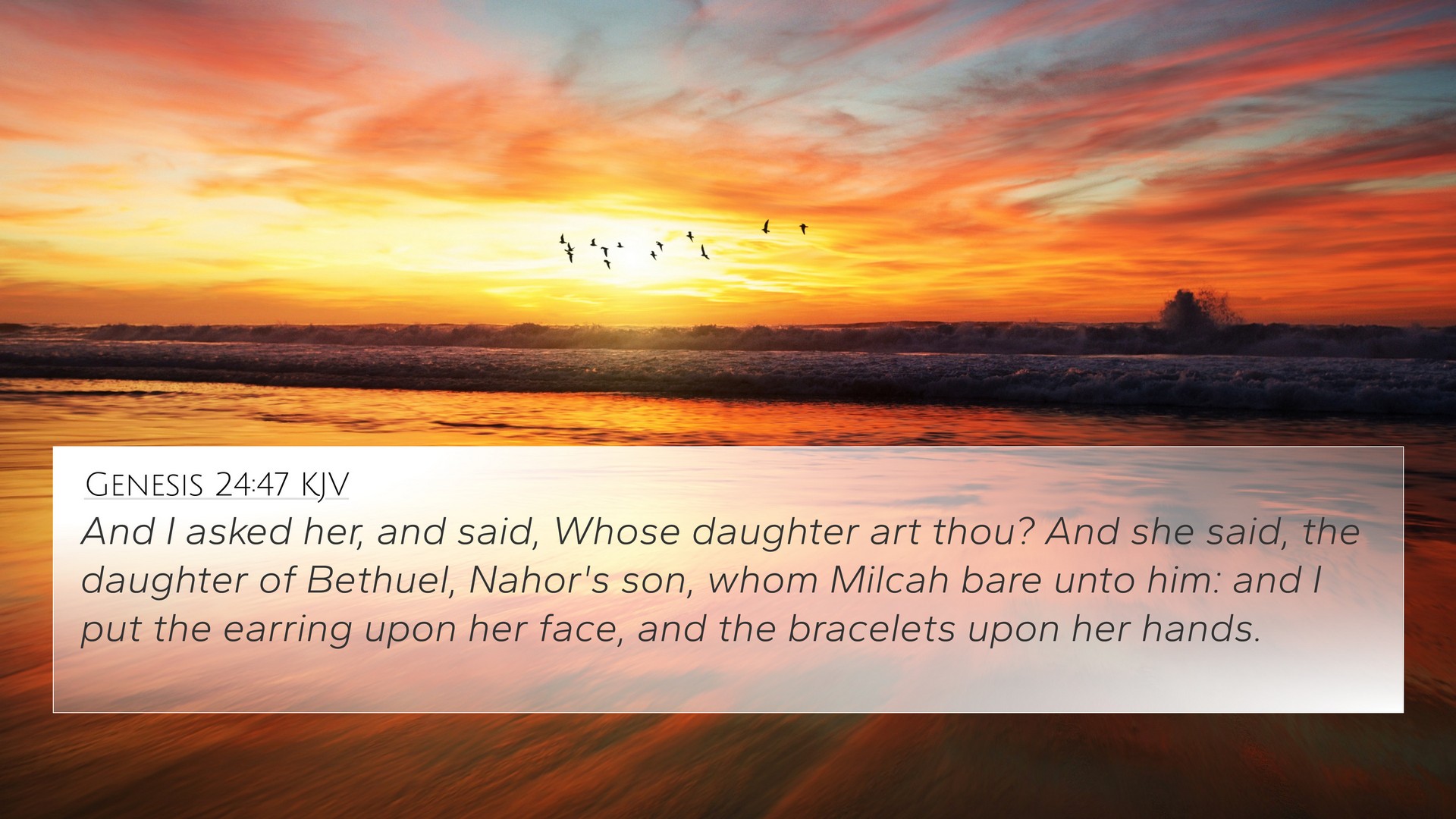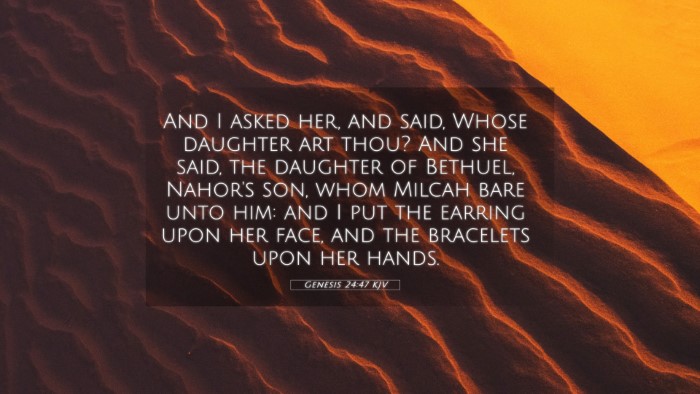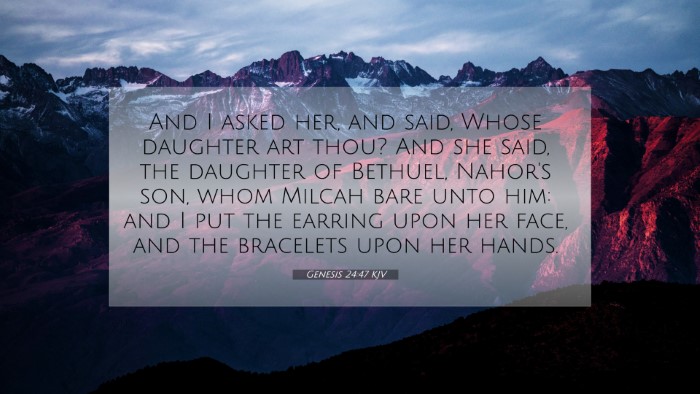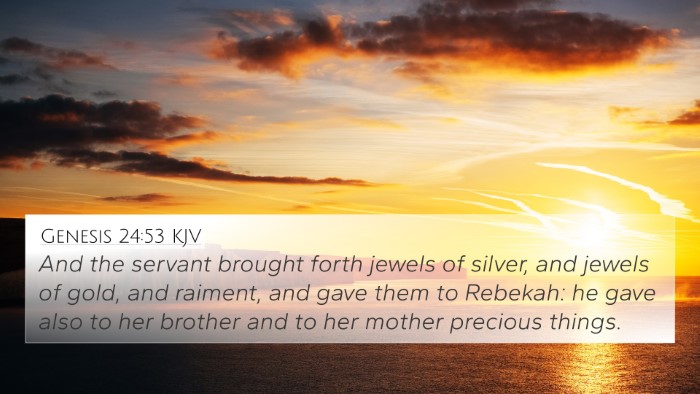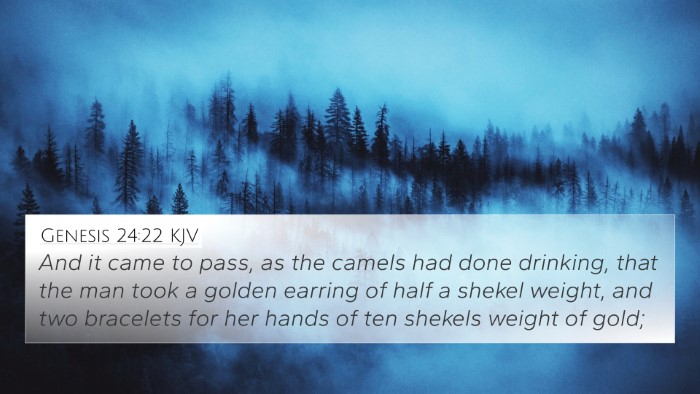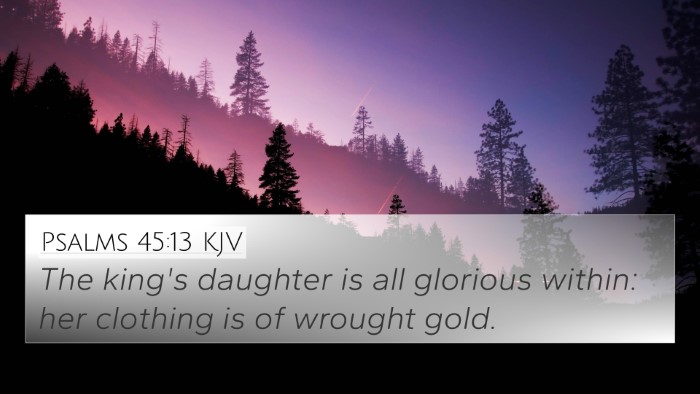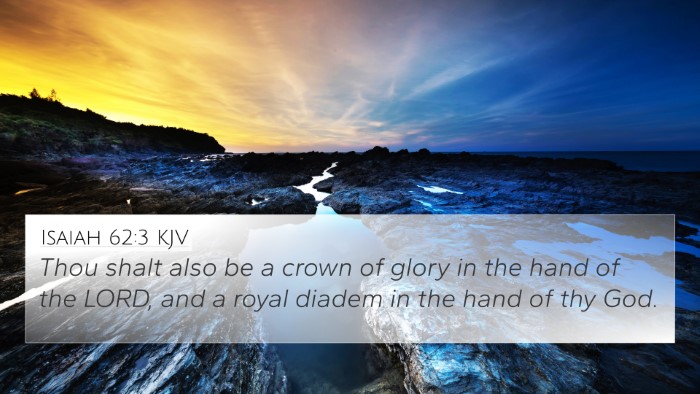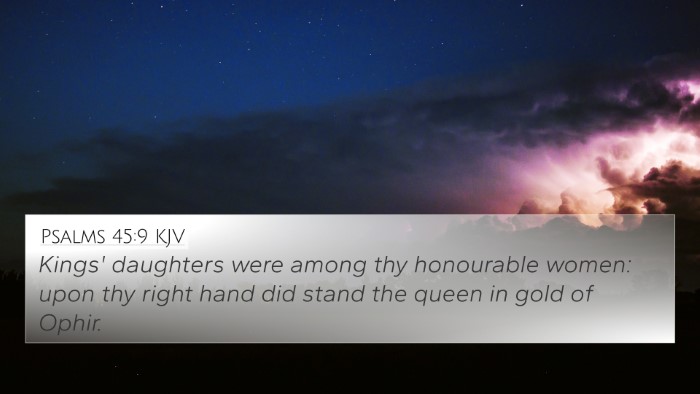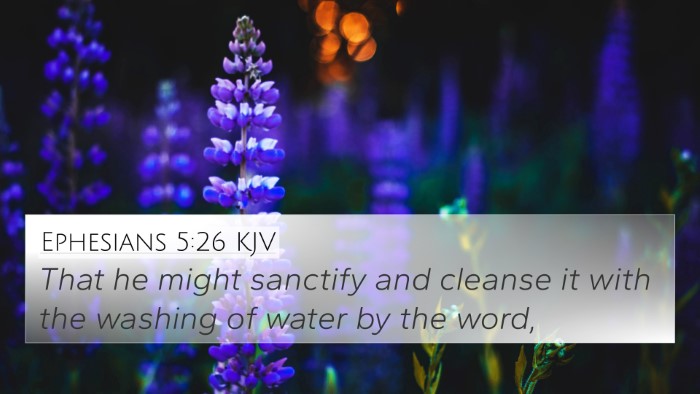Understanding Genesis 24:47
Verse: Genesis 24:47 - "And I asked her, and said, Whose daughter art thou? And she said, The daughter of Bethuel, Nahor's son, whom Milcah bare unto him: and I put the earring upon her face, and the bracelets upon her hands."
Summary of Genesis 24:47
This verse occurs in the context of Abraham's servant seeking a wife for Isaac. The servant recounts his encounter with Rebekah, emphasizing both her lineage and the tokens of a covenant he presented to her. The account is essential for understanding the providence of God in the lives of His people and the importance of divine guidance in decision-making.
Key Themes:
- The importance of lineage and family: Rebekah's identity as the daughter of Bethuel connects her to Abraham's extended family, which meets the servant's criteria for a wife for Isaac.
- Divine providence: The earring and bracelets symbolize the servant’s recognition of God’s hand in leading him to the right choice.
- Symbolism of gifts: The act of giving jewelry signifies a betrothal custom and the fidelity expected in the marital relationship.
- Communication and inquiry: The servant's question highlights the importance of understanding relationships and intentions when pursuing significant life decisions.
Connections to Other Scriptures
Understanding Genesis 24:47 involves recognizing its connections with several other key scriptures that shed light on similar themes:
- Genesis 12:3: God's promise to bless Abraham's offspring, aligning with Rebekah's heritage.
- Genesis 22:20-24: Mention of Abraham’s family, establishing a precedent for asking about lineage.
- Exodus 34:15: Caution against intermarriage with pagan nations, underscoring the importance of choosing a spouse from within the covenant community.
- 1 Corinthians 7:39: A New Testament perspective on marrying within one's faith community.
- Matthew 1:2-16: The genealogy of Jesus, demonstrating the significance of lineage in biblical narratives.
- Ruth 4:10: A reflection on covenant relationships through marriage within Israel's history.
- Proverbs 18:22: “He who finds a wife finds what is good and receives favor from the Lord,” echoing the notion of divine blessing upon finding a suitable partner.
Commentary Insights
Insights from esteemed public domain commentaries further enrich our understanding of Genesis 24:47.
Matthew Henry:
Henry emphasizes the providence depicted in the servant's journey. He notes that the servant's inquiry about Rebekah’s family illustrates the importance of faith-driven actions. The gifts symbolize the servant's faith that this was indeed God’s chosen path for Isaac.
Albert Barnes:
Barnes highlights the cultural significance of family connection in marriage. He points out that the servant's insistence on Rebekah's lineage shows his commitment to following Abraham's wishes, reflecting a deeper understanding of God’s covenant.
Adam Clarke:
Clarke discusses the symbolic nature of the jewelry and argues that this moment serves as both a promise and a form of betrothal. He provides insight into the narrative’s structure, noting it serves to illustrate God's guidance throughout the relationship beginnings.
Conclusion
Genesis 24:47 encapsulates a moment rich in cultural, spiritual, and theological significance. By studying this verse and its connections to other biblical passages, readers gain a more profound understanding of God's guidance, the importance of family heritage, and the symbolism involved in forming covenant relationships. Utilizing tools for cross-referencing and thematic connections in the scripture enhances Biblical studies and reflections on marriage and divine providence.
Further Study Suggestions:
- Explore the role of women in the family lineages throughout the Bible.
- Engage with commentaries focusing on Genesis to deepen your understanding of family and providence.
- Utilize Bible concordances to research additional references connected to Genesis 24.
- Examine the New Testament's teachings on marriage and fidelity by comparing them with Genesis 24.
